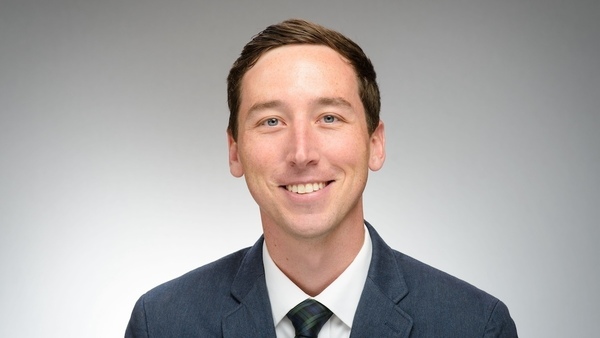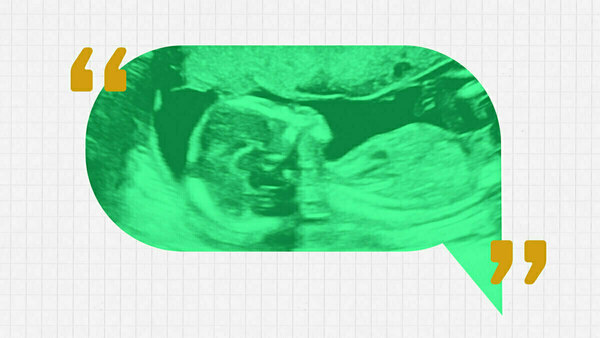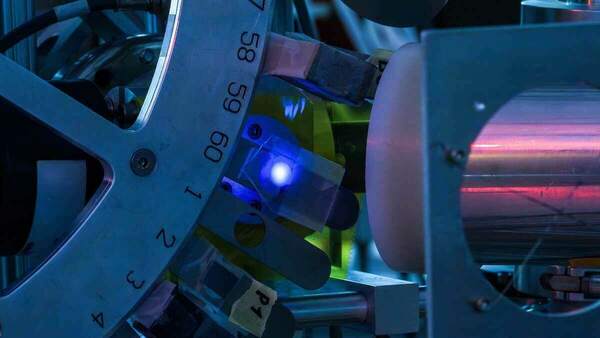Seven engineering faculty named collegiate professors
Seven faculty members in the Notre Dame College of Engineering have been named collegiate professors—a prestigious title awarded by the university and college in recognition of excellence in research, teaching and service. The designation may be conferred on faculty at the assistant, associate or full professor rank who have demonstrated sustained and noteworthy impact in their field.
All appointments were effective July 1, 2025.
“I am thrilled to see these seven faculty members recognized with this honor,” said Patricia J. Culligan, the Matthew H. McCloskey Dean of Engineering. “This milestone highlights the importance of each faculty member’s contributions to their research field, but also to our college and university.”
Alexander Dowling has been named Tony and Sarah Earley Collegiate Professor of Energy and the Environment in the Department of Chemical and Biomolecular Engineering. His research integrates chemical engineering, computational optimization, and machine learning to develop advanced models and decision support tools across molecular to systems scales.
Meng Jiang has been named Frank M. Freimann Collegiate Professor of Computer Science and Engineering. His research focuses on artificial intelligence and data science, with an emphasis on text and graph data for applications in materials discovery, education, recommender systems and mental health.
Edward Kinzel has been named Viola D. Hank Collegiate Professor of Aerospace and Mechanical Engineering. His research interests are centered on laser/material interaction in manufacturing, including thermal transport and optics as well as optical/infrared nanoantennas.
Thomas O’Sullivan has been named Frank M. Freimann Collegiate Professor of Biomedical Electronics in the Department of Electrical Engineering. He develops safe, non-invasive imaging technologies using visible and near-infrared light to improve medical care, with a focus on cancer detection and treatment.
David Richter has been named Frank M. Freimann Collegiate Professor of Environmental Fluid Dynamics in the Department of Civil and Environmental Engineering and Earth Sciences. He develops advanced computational methods to study turbulence and multiphase flows in the atmosphere and ocean, with applications including hurricanes, waves and clouds.
Yichun Wang has been named Keating-Crawford Collegiate Professor of Biomolecular Engineering. Her research advances multiscale biointerface engineering by uncovering the mechanisms of material–bio interactions, driving innovations in nanomedicine, diagnostics, regenerative engineering and biomanufacturing.
Matthew Zahr has been named Robert W. Huether Collegiate Professor in Aerospace Engineering. His research focuses on creating efficient, highly accurate numerical methods to simulate high-speed flow and other complex physical phenomena.
Latest Research
- Doctoral student Joryán Hernández to receive inaugural Sr. Dianna Ortiz, OSU Peacemaker AwardJoryán Hernández, a peace studies and theology doctoral student at the University of Notre Dame, was tapped as the first-ever recipient of the Sr. Dianna Ortiz, OSU Peacemaker Award from Pax…
- The Institute for Educational Initiatives at Notre Dame Launches Free Math App to Help Teachers Strengthen Students’ Understanding of Numbers and OperationsThe Number Sense Assessment app gives educators quick, research-based insights to target instruction and improve student outcomes Notre Dame, IN — Researchers at the Institute for Educational Initiatives at the University of Notre Dame have launched…
- U.S. Senator Todd Young on bridge-building in Congress and Notre Dame’s role in strengthening civil discourseThe University’s home state Senator discusses the importance of fostering common ground, on Capitol Hill and on campus
- Notre Dame researchers to shed light on the Brazilian Amazon, conflict resolution, microplastics, and moreNotre Dame Research (NDR) has selected five awardees of the Research and Scholarship Program – Regular Grant (RSP-RG) and five awardees of the Research…
- First impressions count: How babies are talked about during ultrasounds impacts parent perceptions, caregiving relationshipPsychologist Kaylin Hill studied the impact of a parent’s first impression of their baby during an ultrasound exam. The words used by the medical professional to describe the baby (positive or negative) influence how the parents perceive their baby, relate to them after they're born and even how that child behaves as a toddler. The research has broad implications for how we train medical professionals to interact with expectant parents, as well as how we care for parents during the perinatal period when they are most susceptible to depression.
- Researchers at Notre Dame detect ‘forever chemicals’ in reusable feminine hygiene productsWhen a reporter with the Sierra Club magazine asked Graham Peaslee, a physicist at the University of Notre Dame, to test several different samples of unused menstrual underwear for per- and polyfluoroalkyl substances (PFAS) in 2019, the results fueled concern over chemical exposure in feminine hygiene products — which ultimately ended up in a $5 million lawsuit against the period and incontinence underwear brand Thinx. Then in 2023, the New York Times asked Peaslee to test 44 additional period and incontinence products for PFAS, a class of toxic fluorinated compounds inherently repellent to oil, water, soil and stains, and known as “forever chemicals” for their exceptionally strong chemical and thermal stability. Measurable PFAS were found in some layers of many of the products tested — some low enough to suggest the chemicals may have transferred off packaging materials, while others contained higher concentrations, suggesting the chemicals were intentionally used during the manufacturing process. In the meantime, another group of researchers published a study that found PFAS in single-use period products, leading Peaslee and his lab to widen their investigation into all sorts of reusable feminine hygiene products — often viewed as an eco-friendly option by consumers. Now, the results of that study have been published in Environmental Science & Technology Letters.













